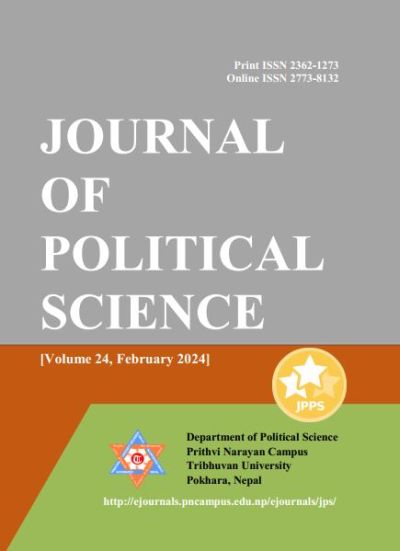Global Power Shift and Nepal's Geopolitical Complexity
DOI:
https://doi.org/10.3126/jps.v24i1.62865Keywords:
Nepal-India, open borders, border governance, transnational threats, border governance strategyAbstract
The process of globalization, with the flow of people, merchandise, and capital, has invited different challenges, threats, and insecurities. Thus, the idea of border governance has emerged among the states, calling for a collaborative approach to border management systems between the neighboring states. As a qualitative study adhering to the "practice turn" in International Relations (IR) and considering human actions responsible for constructing social realities, the study has focused on the Nepal-India open border. As a unique border, the study has pointed out different threats and challenges faced by Nepal and India because of their openness. The article has briefly elucidated the emerging concept of border governance. Likewise, it has introduced the idea of border governance for Nepal-India open borders, outlining its principles and strategies. Overall, the study emphasized the importance of border governance for Nepal-India borders, recognizing border disputes and enormous challenges.
Downloads
Downloads
Published
How to Cite
Issue
Section
License

This work is licensed under a Creative Commons Attribution-ShareAlike 4.0 International License.




